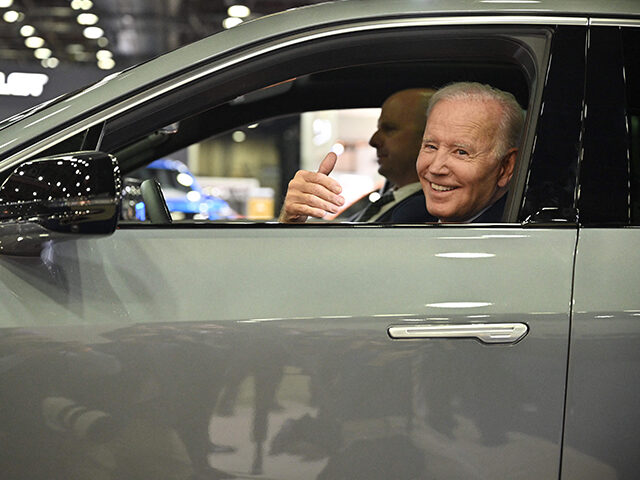President Joe Biden has set a goal of creating a national network of 500,000 publicly available electric vehicle (EV) chargers by 2030 as part of his grand all-encompassing climate agenda.
Trouble is, despite the $5 billion National Electric Vehicle Infrastructure program splashing taxpayer cash for the project just Ohio, New York, Pennsylvania and Hawaii have taken the trouble to oblige, AP reports.
Easily accessible charging ports are a critical part of Biden’s mandate to force drivers away from gasoline-powered cars and trucks – whether they like it or not.
The AP report notes that effort took on greater urgency last month as the Biden administration announced new automobile emissions standards that officials called the most ambitious plan ever to cut pollution from passenger vehicles.
Meeting those standards would require a huge increase in sales of EVs and plug-in hybrids which are just not occurring.
As part of the national charging station rollout signed into law in November 2021, the Biden administration awarded $623 million in grants to states, local governments and tribes in January.
The grants will fund 47 EV charging stations and related projects in 22 states and Puerto Rico, including 7,500 charging ports, even as buyer resistance sees nowhere near the EV take-up needed to make the new charging ports financially viable.
YIKES! Elite Pete Buttigieg GRILLED Over Unaffordable Cost of EV’s
C-SPANCritics of the government’s plan say the planned 500,000 public chargers won’t be enough to meet Biden’s ambitious climate goals.
The Department of Energy’s National Renewable Energy Laboratory estimated last year that the U.S. will need 1.2 million public chargers by 2030, a huge jump from the 175,00 public charging ports now available, as measured by the Alternative Fuels Data Center, a division of the Energy Department.
Those figures are based on EVs gaining wider acceptance, something still not happening in the hyper competitive U.S. car market.
As Breitbart News reported, high prices and too few charging stations are cited as the main deterrents for prospective EV buyers with vehicle range another critical factor in consumers considering a jump.
According to a poll in 2023, about four in 10 U.S. adults are at least somewhat likely to switch to an eV, but the making the historic shift from the country’s century-plus love affair with gas-driven vehicles still has a long road ahead.
The poll by The Associated Press-NORC Center for Public Affairs Research and the Energy Policy Institute at the University of Chicago shows the Biden administration’s plans to dramatically raise U.S. EV sales could run into resistance from consumers.
Only eight percent of U.S. adults say they or someone in their household owns or leases an electric vehicle, and just eight percent say their household has a plug-in hybrid vehicle.
Even with tax credits of up to $7,500 to buy a new EV, it could be difficult to persuade drivers to ditch their gas-burning cars and trucks for vehicles without tailpipe emissions.

COMMENTS
Please let us know if you're having issues with commenting.